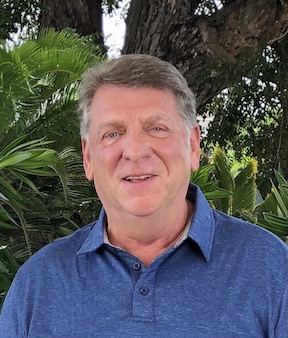A light dusting of humans freckle the southern edge of the ice-bound island of Greenland, which President Donald Trump has proposed buying from the Kingdom of Denmark.
Trump, once criticized for being “isolationist,” is now drawing criticism from the Democrats and their media members for being “expansionist.”
Greenland is hardly green; it’s mainly a large sheet of ice with a green fringe in the south, thanks to gradual melting of the icecap that covers it. What does Greenland offer, other than fish and minerals?
Greenland is larger than Alaska, but would likely be granted the status of territory. With such a small population of 56,000 people, it’s the least populated country … except that it is not a country. It is an autonomous territory within the Kingdom of Denmark, meaning it has self-governance but is still part of Denmark, which is ruled by King Frederik X, who took the throne as head of state on Jan. 14, 2024, when the previous monarch Queen Margrethe II abdicated and passed the crown to her son.
The relationship with the United States goes back to post-Civil War days. In 1868, Secretary of State William Seward commissioned a report outlining the possibility of buying Greenland and Iceland. Seward had just arranged for the purchase of Alaska from Tzarist Russia.
The report concluded that the minerals and fisheries of Greenland would be a benefit to America.
But there were other reasons to buy the 836,300-square-mile island with an ice sheet the size of Texas:
“In considering the future of Greenland, we cannot confine ourselves entirely to materialistic considerations. Nations have other resources besides those which figures can express to us by statistical tables. If a country has in it the means of developing man in any way, physically or mentally, it may be said to be rich to that extent…Even if we had no hope of finding there a place for settlement or new roads to profit, there are still strong reasons why civilization should strive to reach and explore them. They possess, as it were, the key to many problems of science, and the answer to many questions which are at present discussed by geographers. Certainly, new truths are as precious acquisitions as new mines or new fishing grounds, and a country which has supplied them has enriched the world as much as one which sends us the means of indulging our tastes or satisfying our appetites.”
Congressman Nick Begich III seems open to the idea:
“In 1868 US Secretary William H. Seward, the architect of the Alaska Purchase, identified Greenland as an acquisition target that could stabilize our nascent supply chain w/critical minerals like cryolite, while bolstering US naval reach. Today, we know that Arctic routes in the waters off Greenland are more crucial than ever and that a strengthened US presence in the region enhances global security. Further, an inclusion of Greenland as a U.S. territory would substantially expand the national portfolio of critical minerals and other important resources while enhancing the way of life for local Greenlanders. Concepts like these are history defining, and despite being ridiculed at the time, Alaskans are thankful for the vision of William Seward in architecting the Alaska Purchase,” Begich wrote on X on Wednesday.
The population of Greenland is largely Inuit and financially poor, with a poverty rate of over 16%. The island is now is largely subsidized by the Danes, and fishing is the main industry.
The island may be compared to Alaska, which is 20% smaller than Greenland: The lowest latitude of Greenland is at Latitude 59, which is just north of where Juneau, Alaska is situated. The highest latitude is at Latitude 83, further north than Alaska’s city of Utqiagvik, which is at 71.29. Greenland’s capital city is Nuuk. home of about 19,000 people.
Initially, it was explored and settled in 986 AD by Norwegians and Icelanders, through Erik the Red. Later, the Norwegians left due to the harsh climate and it became part of Denmark. But that was not quite settled until a negotiation in 1933 at the Permanent Court of International Justice decided the matter for Denmark.
During the Nazi occupation of Denmark, Greenland severed its connection and in 1941, the United States occupied Greenland to protect it against Nazi Germany. The U.S. military stayed until 1945 and established a few air bases, some of which are used as commercial airports today.
After World War II, the United States offered to buy Greenland from Denmark for $100 million, but the monarch rejected the offer.
In 1953, the Danish government advised the United Nations that Greenland was now an integral part of the Danish kingdom and that Denmark no longer had responsibility for Greenland under the UN Charter.
After further steps toward autonomy, Greenland gained self-rule in 2009 for some aspects of governance, and Greenlanders were recognized as a separate people, with an option to exercise independence from Denmark, by the international community.
The Danish king recently changed the royal coat of arms to feature Greenland and the Faroe Islands, as what is seen as a message to Trump that he intends to keep Greenland as part of Denmark, which is a U.S. Ally.











